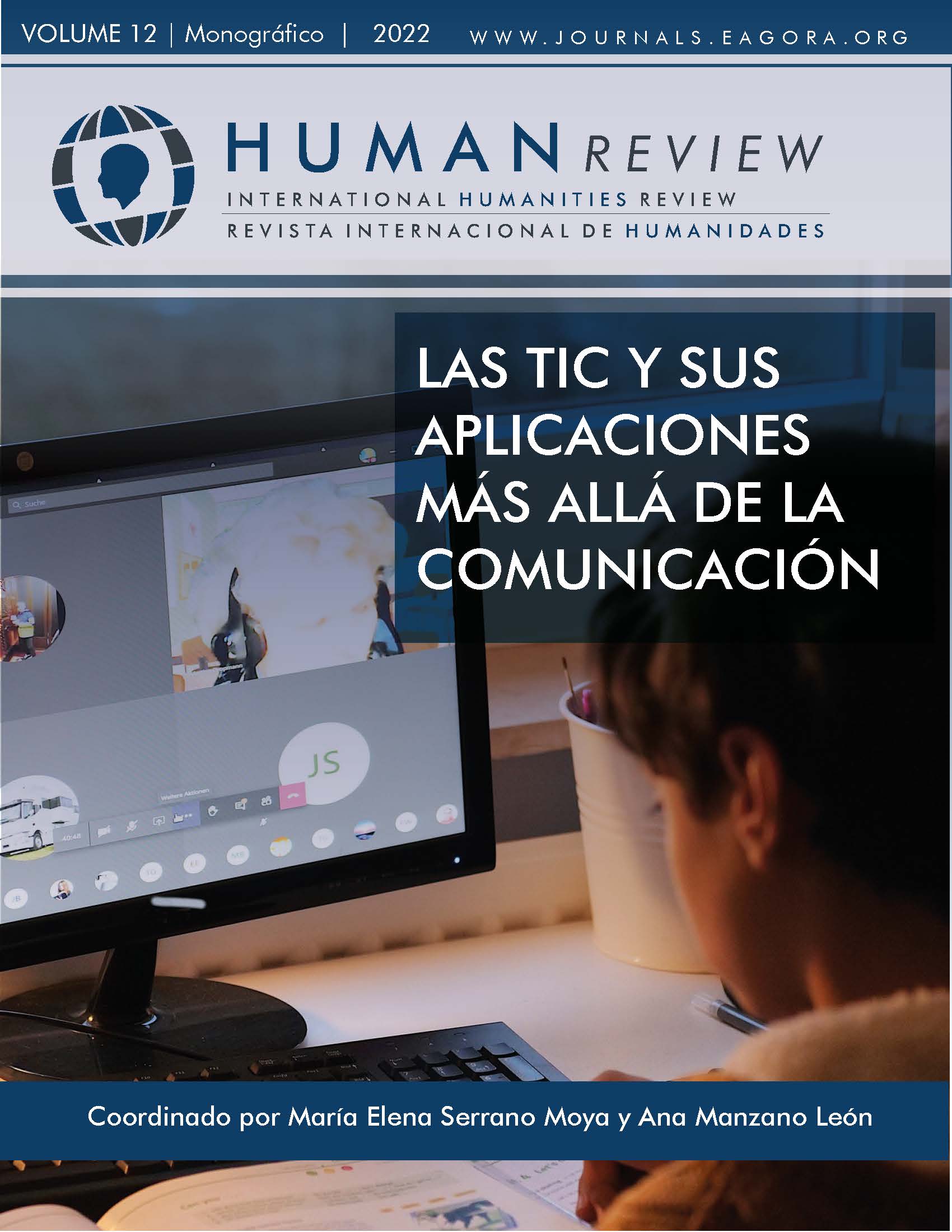The Game as a Didactic Resource for Mathematics at the University
Experience in several Engineering Degrees
DOI:
https://doi.org/10.37467/revhuman.v11.3948Keywords:
Didactic Games, Mathematics, Self-learning, Group work, Engineering, ICT, MoodleAbstract
This work presents the results from a teaching innovation project focused on the inclusion of simple games, combined with Information and Communication Technologies and group dynamics, as a support tool in the learning of seven subjects in the field of Mathematics, taught in the first courses of different Degrees of Engineering. The participating teaching team has verified that the proposed methodology increases the motivation and active participation of the students, who have highlighted the usefulness of the implemented games in their learning process.
References
Awedh, M., Mueen, A., Zafar, B. y Manzoor, U. (2014). Using Socrative and smartphones for the support of collaborative learning. International Journal on Integrating Technology in Education, 3(4), 17-24. http://dx.doi.org/10.5121/ijite.2014.3402 DOI: https://doi.org/10.5121/ijite.2014.3402
Cornellà, P.; Estebanell, M. (2018). gaMoodlification: Moodle al servicio de la gamificación del aprendizaje. Campus Virtuales, 7(2), 9-25
Forbes, L. (2021). The Process of Playful Learning in Higher Education: A Phenomenological Study. Journal of Teaching and Learning, 15, 57-73. http://dx.doi.org/10.22329/jtl.v15i1.6515 DOI: https://doi.org/10.22329/jtl.v15i1.6515
Garcia-Iruela, M., Hijon-Neira, R. (2017). Experiencia de juegos serios en el aula de formación profesional, V Congreso Internacional de Videojuegos y Educación (CIVE‘17), 2017.
García Miranda, I. y Durán Heras, A. (2020). Uso de videojuegos de simulación empresarial como complemento de aprendizaje en el área de Ingeniería de Organización. Dirección y Organización, 0(70), 19-27. https://doi.org/10.37610/dyo.v0i70.566 DOI: https://doi.org/10.37610/dyo.v0i70.566
García-Peñalvo, F. J. (2021). Transformación digital en las universidades: Implicaciones de la pandemia de la COVID-19. Education in the Knowledge Society (EKS), 22, e25465. https://doi.org/10.14201/eks.25465 DOI: https://doi.org/10.14201/eks.25465
Grávalos-Gastaminza, M. A., Hernández-Garrido, R. y Pérez-Calañas, C. (2022). La herramienta tecnológica kahoot como medio para fomentar el aprendizaje activo: un análisis sobre su impacto en la docencia en el grado de Administración y dirección de Empresas. Campus Virtuales, 11(1), 115-124. https://doi.org/10.54988/cv.2022.1.970 DOI: https://doi.org/10.54988/cv.2022.1.970
Hamari, J., Koivisto, J., y Sarsa, H. (2014). Does gamification work? A literature review of empirical studies on gamification. In System sciences (HICSS), 2014 47th Hawaii International Conference (pp. 3025e3034). Hawaii: HICSS. http://dx.doi.org/10.1109/HICSS.2014.377 DOI: https://doi.org/10.1109/HICSS.2014.377
Hernández-Ramos, J., Martín, M.V. y Sánchez-Gómez, M.C. (2020). Valoración del empleo de Kahoot en la docencia universitaria en base a las consideraciones de los estudiantes. RISTI - Revista Ibérica de Sistemas e Tecnologias de Informação, 16-30. http://dx.doi.org/10.17013/risti.37.16-30 DOI: https://doi.org/10.17013/risti.37.16-30
Hidalgo-Cajo, B. G., Gisbert-Cervera, M. (2021). Diseño y validación de un instrumento para evaluar la adopción de la tecnología digital en el profesorado universitario. Campus Virtuales, 10(2), 51-67.
Ismail, M.AA., Ahmad, A., Mohammad, J.AM., Fakri N.M.R.M., Nor M.Z.M. y Pa M.N.M. Using Kahoot! as a formative assessment tool in medical education: a phenomenological study. BMC Med Educ 19, 230 (2019). https://doi.org/10.1186/s12909-019-1658-z DOI: https://doi.org/10.1186/s12909-019-1658-z
Lim, W.N. (2017). Improving student engagement in higher education through mobile-based interactive teaching model using socrative. IEEE Global Engineering Education Conference (EDUCON), 404-412. https://doi.org/10.1109/EDUCON.2017.7942879 DOI: https://doi.org/10.1109/EDUCON.2017.7942879
Luu, K. y Freeman, J. G. (2011). An analysis of the relationship between information and communication technology (ICT) and scientific literacy in Canada and Australia. Computers and Education, 56(4), 10721082. https://doi.org/10.1016/j.compedu.2010.11.008 DOI: https://doi.org/10.1016/j.compedu.2010.11.008
Mazur, E. (2014). Peer instruction: A user’s manual. Pearson New International Edition. ISBN 978-1-29203-970-1
Ortiz-Colón, A.M., Jordán, J. y Agredal, M. (2018). Gamificación en educación: una panorámica sobre el estado de la cuestión. Educação E Pesquisa, 44, e173773. https://doi.org/10.1590/s1678-4634201844173773 DOI: https://doi.org/10.1590/s1678-4634201844173773
Ovejero, A. (2013). Utilidad del aprendizaje cooperativo/colaborativo en el ámbito universitario. Documento Univest. Girona.
Vergara Rodríguez, D., Mezquita Mezquita, J.M. (2016) Diseño de juegos serios para reforzar conocimientos: una experiencia educativa en secundaria. Profesorado, 20(2): 238-254 (2016). http://hdl.handle.net/10481/42584 DOI: https://doi.org/10.30827/profesorado.v20i2.10417
Wang, A. I. y Tahir, R. (2020). The effect of using Kahoot! For learning – A literature review. Computers and Education, 149, 103818. https://doi.org/10.1016/j.compedu.2020.103818 DOI: https://doi.org/10.1016/j.compedu.2020.103818
Downloads
Published
How to Cite
Issue
Section
License
Those authors who publish in this journal accept the following terms:
- Authors will keep the moral right of the work and they will transfer the commercial rights.
- After 1 year from publication, the work shall thereafter be open access online on our website, but will retain copyright.
- In the event that the authors wish to assign an Creative Commons (CC) license, they may request it by writing to publishing@eagora.org









